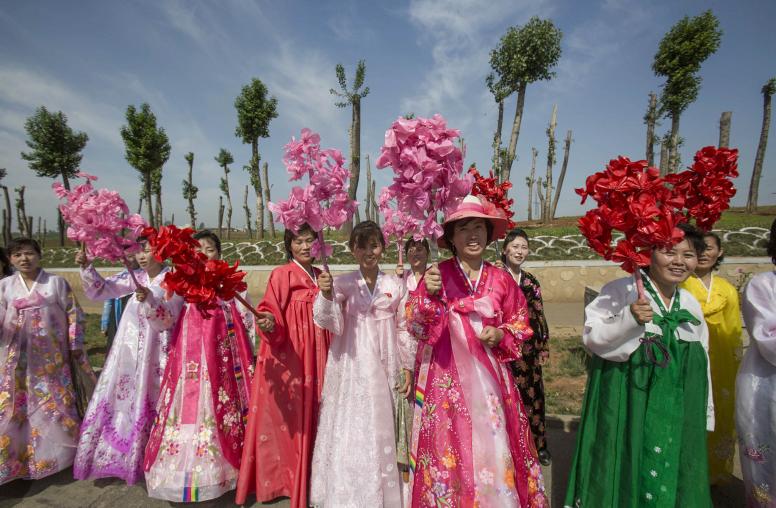Women and Countering Violent Extremism
Strengthening Policy Responses and Ensuring Inclusivity
Read the Event CoverageWomen worldwide suffer disproportionately from violent extremism and conflict. Women’s key roles in society put them in ideal positions to prevent extremist violence. Yet, 15 years after the United Nations Security Council vowed to reverse the broad exclusion of women from leadership in security and peacebuilding, they remain marginalized. On July 21 at USIP, experts from civil society, the United Nations, academia, and the U.S. government discussed ways to include women in efforts to counter violent extremism. The debate directly informed U.S. government officials preparing for major international conferences on these issues in fall 2015.

The U.N. Security Council recognized in 2000 (in its Resolution 1325) that we need women to help lead in global efforts at resolving violent conflict. Several current wars and conflicts underscore how the recent surge in violent extremism has given new urgency both to protecting women and including them in solutions. The U.N. secretary general’s special representative on sexual violence, Zainab Bangura, discussed that imperative, having recently visited Syria and Iraq.
This forum was co-sponsored by USIP, the State Department and the U.S. Agency for International Development. It included U.S. government and U.N. officials who were looking ahead to two conferences that will help shape the near-term future of women in security and peacebuilding worldwide. These are a ministerial-level meeting on countering violent extremism to be held during the U.N. General Assembly session in September, as well as a ministerial session on the implementation of U.N. Security Council Resolution 1325 that aims to promote women’s roles in all international work on peace and security.
Continue the conversation on Twitter with #WomenCVE.
Speakers
- Zainab Hawa Bangura
Special Representative of the U.N. Secretary General on Sexual Violence in Conflict - Ambassador Anwarul K. Chowdhury
Former Under-Secretary-General and High Representative of the United Nations - Timothy B. Curry
Deputy Director, Counterterrorism Policy, U.S. Department of Homeland Security - Eric G. Postel
Associate Administrator, U.S. Agency for International Development - Robert Berschinski
Deputy Assistant Secretary, Bureau of Democracy, Human Rights, and Labor, U.S. Department of State - Carla Koppell
Chief Strategy Officer, U.S. Agency for International Development - Nancy Lindborg
President, U.S. Institute of Peace
Panelists:
- Zainab Hawa Bangura
Special Representative of the U.N. Secretary General on Sexual Violence in Conflict - Ambassador Anwarul K. Chowdhury
Former Under-Secretary-General and High Representative of the United Nations - Chantal de Jonge Oudraat
President, Women in International Security - Susan Hayward
Director, Religion and Peacebuilding, Governance, Law and Society, U.S. Institute of Peace - Jacqueline O'Neill
Director, Institute for Inclusive Security - Kathleen Kuehnast, Moderator
Director, Gender and Peacebuilding, USIP




